Kohila Kurunathan
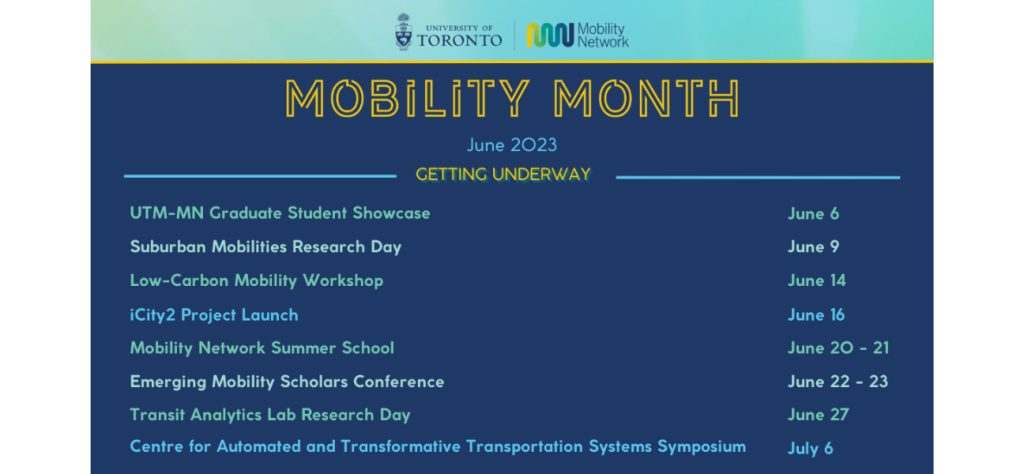
June 2023 is "Mobility Month"
Mobility Network proclaims June 2023 as “Mobility Month,” during which the initiative will host a record number of events showcasing the many facets of Mobility Network research demonstrating the work of “Getting Underway” to a sustainable, equitable mobility future.

Can AI help make our buildings more sustainable?
Assistant Professor Seungjae Lee is working on a pilot project aimed at reducing U of T’s climate footprint by using machine learning to optimize heating and cooling systems in existing buildings
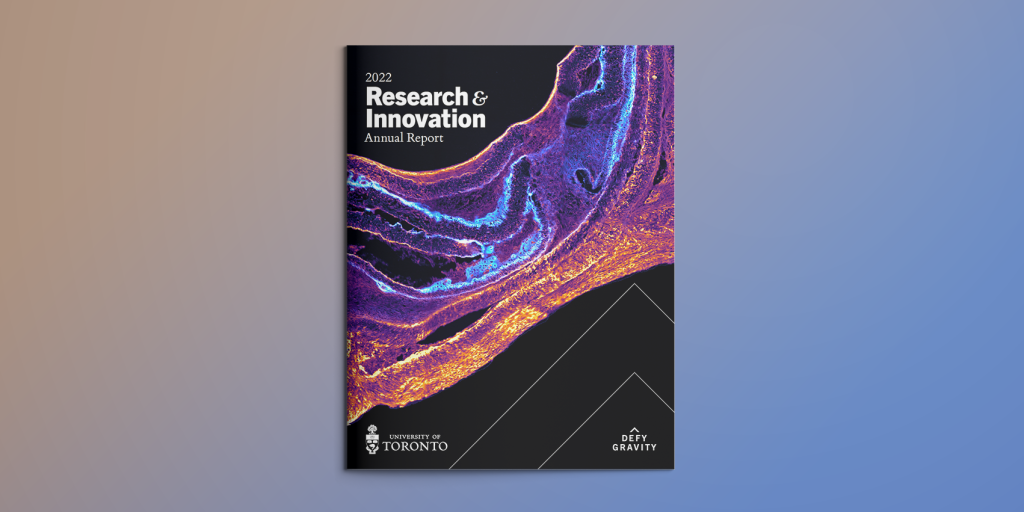
U of T 2022 Research & Innovation Annual Report released
The Tanenbaum Institute for Science in Sports (TISS), Institute for Pandemics, Robotics Institute and the Toronto Cannabis and Cannabinoid Research Consortium (TC3) are amongst the institutional strategic initiatives whose work is highlighted in the 2022 Research and Innovation Annual Report.

U of T researchers developing AI system to tackle harmful social media content
What if we used artificial intelligence to combat such harmful content such as hate speech and misinformation? That’s the goal of a team of University of Toronto researchers who were awarded a Catalyst Grant by the Data Sciences Institute (DSI) to develop an AI system to address the marginalization of communities in data-centric systems – including social media platforms such as Twitter.
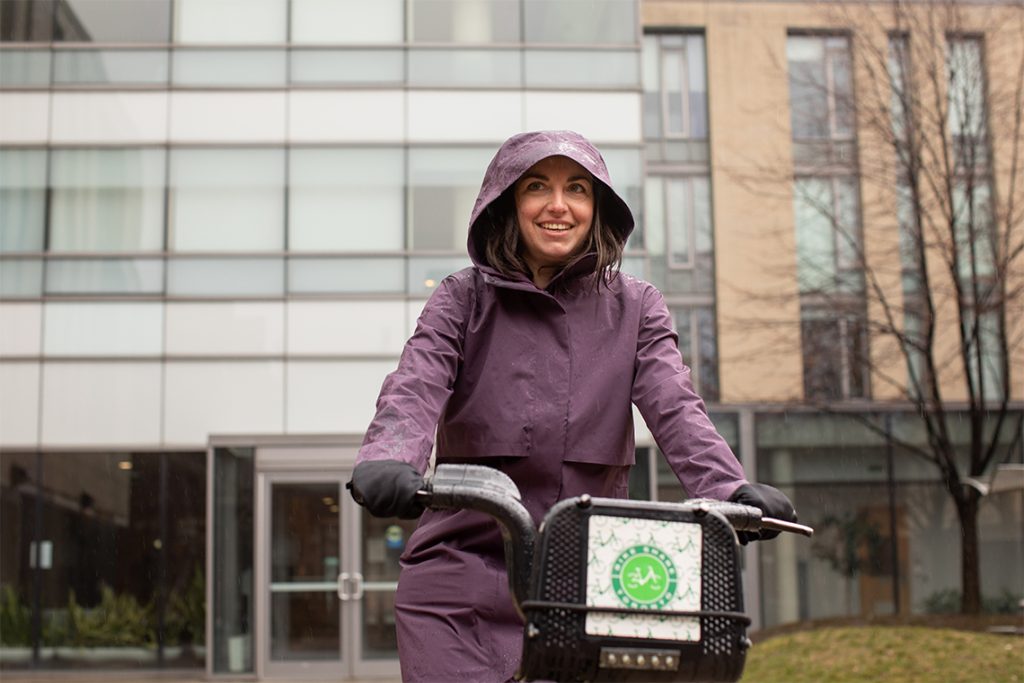
Shifting gears: How data science led Madeleine Bonsma-Fisher from studying germ models to bike lanes
A cycling activist, Bonsma-Fisher is studying traffic patterns as part of her post-doctoral research at the University of Toronto’s Data Sciences Institute, an institutional strategic initiative that is a tri-campus hub for number crunchers across disciplines. Before that, she modelled evolutionary interactions between microbes. The common thread? Data and data analysis.

Inlight launch paves the way for student mental health research at U of T
To mark the start of Mental Health Week, Inlight hosted their much-anticipated launch event on May 1. The initiative aims to fill knowledge gaps about the mental health and wellness needs of post-secondary students.
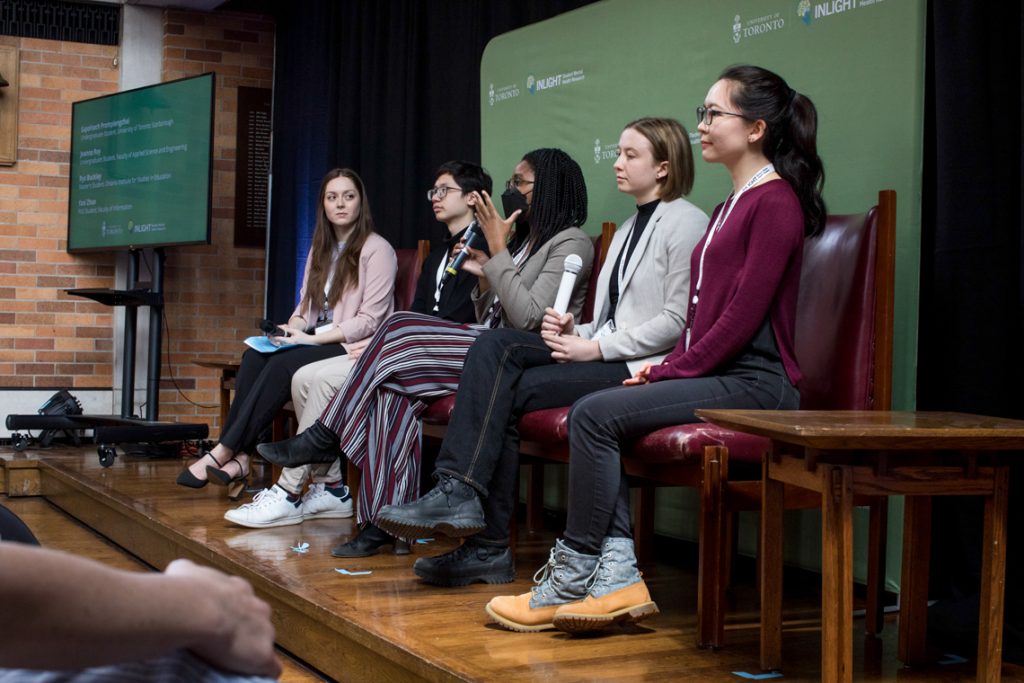
In partnership with students, U of T launches strategic initiative to improve mental health outcomes through research
Inlight funds leading-edge research on youth and student mental health to uncover the evidence and data needed to inform and improve mental health services on university campuses – both at U of T and at universities across Ontario and around the world. The initiative stems from the recommendations of a 2019 report by the Presidential & Provostial Task Force on Student Mental Health.
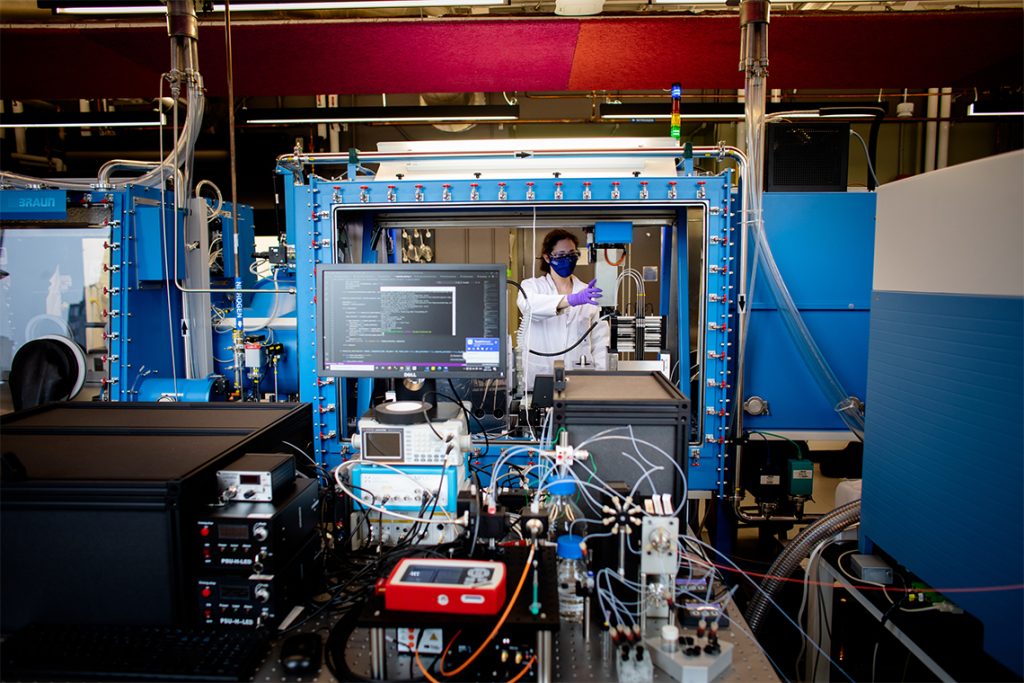
U of T receives $200-million grant to support Acceleration Consortium's ‘self-driving labs’ research
The University of Toronto has been awarded a $200-million grant from the Canada First Research Excellence Fund (CFREF) to revolutionize the speed and impact of scientific discovery through its Acceleration Consortium. The funding – the largest federal research grant ever awarded to a Canadian university – will support the consortium’s work on “self-driving labs” that combine artificial intelligence, robotics and advanced computing to discover new materials and molecules in a fraction of the usual time and cost.
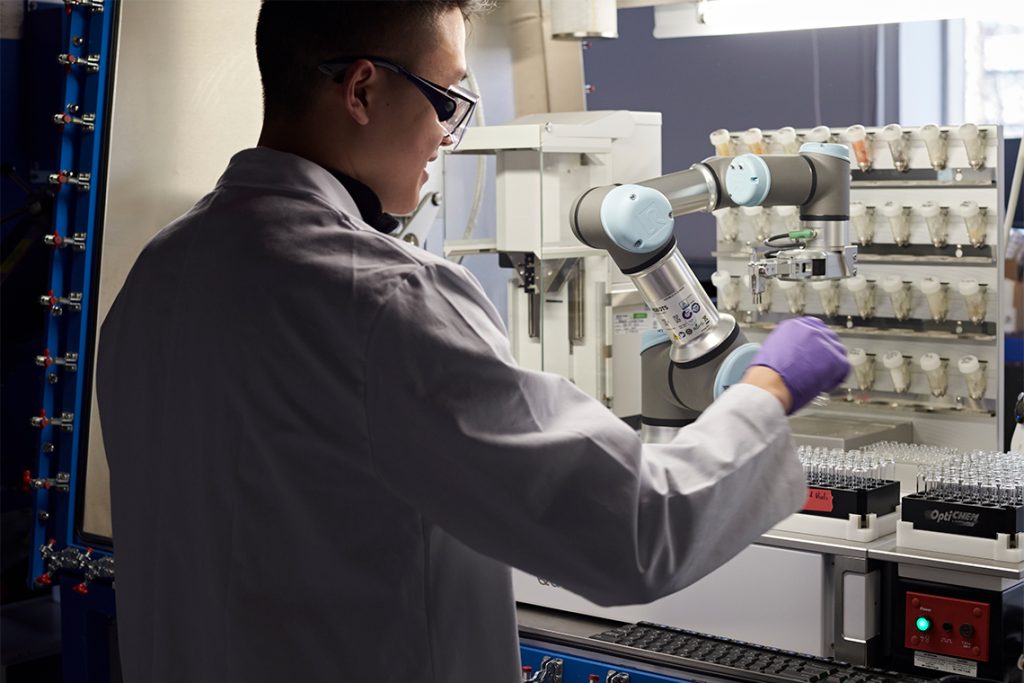
Experts say $200-million grant awarded to U of T will drive ‘big science’ via the Acceleration Consortium
The Acceleration Consortium will use the funding to commercialize ethically designed technologies and materials to benefit society and train today’s scientists with the skills they need to advance the emerging field of accelerated materials discovery. It will also examine critical issues regarding the application of the technology, including from environmental and Indigenous perspectives.

U of T-led collaboration to develop community-tailored clean energy technologies
The CANSTOREnergy project brings together researchers from 11 Canadian universities, along with community, utility and industry partners, to develop technologies that convert carbon-based emissions into useful products, such as fuels and raw materials, and create a net-zero means of seasonal storage for renewable energy that meets specific community needs.
Led by researchers from U of T’s Climate Positive Energy initiative, the collaborative effort is being supported by $24 million through the federal New Frontiers in Research Fund’s 2022 Transformation Competition.

Seven U of T students receive inaugural Inlight Research Fellowships in support of mental health research
“The Inlight Research Fellowship Program supports exceptional graduate students in becoming independent researchers in the field of post-secondary student mental health, because they are the future of this field of research and their perspectives matter,” says Kristin Cleverley, director and chair of Inlight and an associate professor at the Lawrence S. Bloomberg Faculty of Nursing.
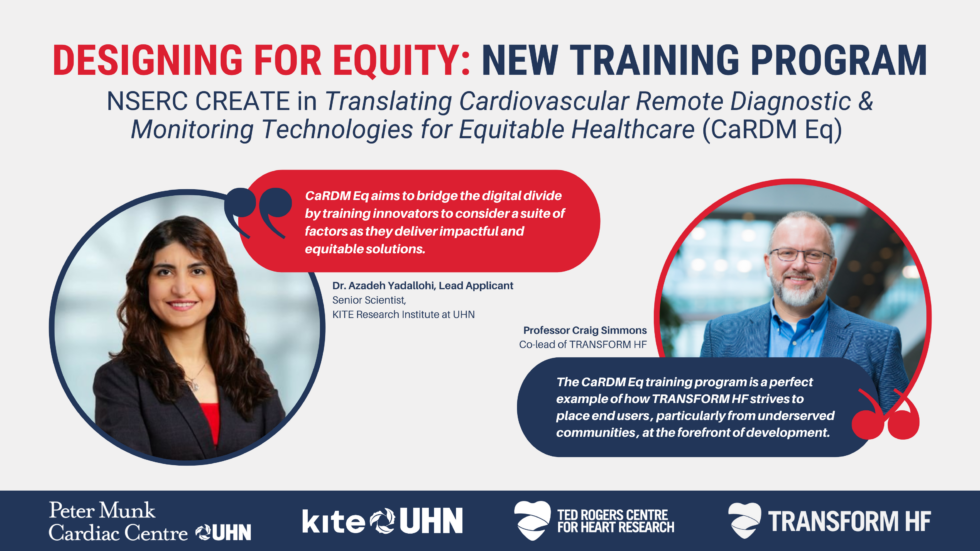
Designing for Equity: New Grant Advances Digital Innovation for Equitable Heart Failure Care
TRANSFORM HF has been awarded a $1.65 million 6-year NSERC Collaborative Research and Training Experience (CREATE) grant to train the next generation of digital health innovators to design for equity. "Translating Cardiovascular Remote Diagnostic and Monitoring Technologies for Equitable Healthcare," or CaRDM Eq, is the first training program of its kind, and one of only 20 initiatives being funded through the national NSERC CREATE program.
